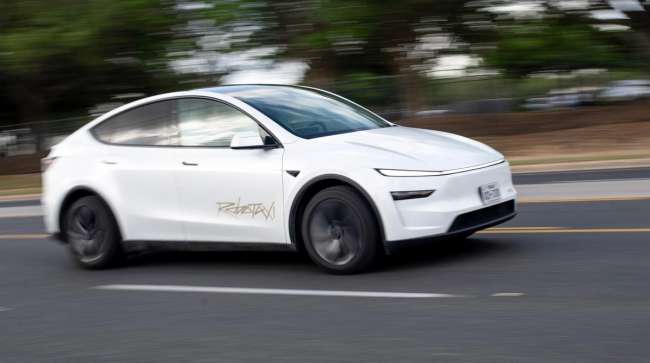Inledning
Det nyligen godkännandet av en samåkningslicens för Tesla i Texas markerar en betydande förändring i transportlandskapet, särskilt när det gäller autonoma fordon. Denna utveckling öppnar nya vägar för logistik och transporteffektivitet och omformar hur tjänster integrerar teknik i den dagliga verksamheten.
Teslas nya samåkningslicens
Tesla Inc. har officiellt säkrat en licens för samåkning i Texas, vilket banar väg för dess innovativa robotaxi tjänst för att verka under nyligen antagna statliga bestämmelser. Denna licens placerar Tesla sida vid sida med etablerade samåkningsjättar, som till exempel Uber och Lyftsom också har beviljats tillstånd enligt de senaste ändringarna i lagen.
Regelverket
Från och med den 1 september har reglerna för samåkningstjänster i Texas genomgått en betydande förändring. Den nya lagen kräver att all samåkningsverksamhet, oavsett om den involverar autonoma fordon eller mänskliga förare, följer en striktare uppsättning krav. Detta inkluderar förbättrade tillståndsgivning, ökad tillsyn och ytterligare bestämmelser som syftar till att säkerställa säkerhet och ansvarsskyldighet.
Krav för autonoma fordon
Den uppdaterade policyn föreskriver att alla autonoma fordon som körs i Texas måste vara utrustade med:
- Kameror att övervaka omgivningen
- Försäkring ansvarsskydd
- Förmågan att följ alla trafikregler utan avvikelser
Effekten på logistik och transport
Att integrera autonoma fordon i samåkningsramverket kan revolutionera logistiken. Betoningen på teknik förbättrar inte bara servicehastigheten utan även effektiviteten i resurshanteringen. När Tesla och andra företag driftsätter autonoma fordon kan de förbättra fraktleveranser, effektivisera utskick och erbjuda mer pålitliga transportlösningar. Till exempel kan integrering av dessa avancerade tekniker med plattformar som GetTransport.com kan förstärka sina logistiktjänster genom effektiva lösningar för lasttransport.
Potentiella fördelar
1. Ökad effektivitet – Automatisering kan drastiskt minska driftskostnaderna och förbättra serviceleveranstiderna.
2. Tillförlitlighet – Med AI-drivna fordon som följer trafikregler och vägförhållanden kan risken för olyckor minska, vilket leder till säkrare vägar.
3. Miljöpåverkan – Att förlita sig på elfordon som de som tillverkas av Tesla minskar koldioxidutsläppen, vilket bidrar positivt till miljön.
Framtida överväganden för branschen
När självkörande fordon börjar bli vanligare i samåkningstillämpningar måste logistikbranschen anpassa sig därefter. Företagets verksamhet kan behöva ändra sin strategi för att utnyttja dessa utvecklingar och se till att de inte hamnar på efterkälken i detta föränderliga landskap.
Hur GetTransport.com passar in
Mitt i dessa förändringar erbjuder plattformar som GetTransport.com mångsidiga tjänster anpassade för moderna transportbehov. Med fokus på att tillhandahålla prisvärda och globala godstransportlösningar kan kunderna enkelt ordna kontors- eller hemflyttar, leveranser av skrymmande föremål och mer, allt hanterat genom deras användarvänliga gränssnitt.
Slutsats
Framstegen inom teknik för autonoma fordon, exemplifierade av Teslas nyligen erhållna tillstånd för samåkning i Texas, signalerar en transformativ era för logistik och transport. Medan de bredare globala implikationerna av denna förändring fortfarande kan vara under utveckling, blir de direkta fördelarna för logistik- och transportsektorerna allt tydligare. Personlig erfarenhet kommer alltid att trumfa recensioner när det gäller att förmedla de bästa alternativen, men GetTransport.com utmärker sig som en fyr av tillförlitlighet, bekvämlighet och konkurrenskraftiga priser för alla logistiska behov. När du överväger dina nästa steg inom godstransport, prioritera effektiva lösningar med transparent verksamhet. Boka din resa idag på GetTransport.com.

 Tesla får tillstånd i Texas för sin Robotaxi-tjänst enligt nya bestämmelser">
Tesla får tillstånd i Texas för sin Robotaxi-tjänst enligt nya bestämmelser">